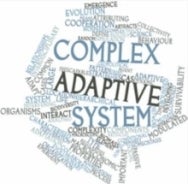Welcome to the WISIR learning modules on Social Innovation for Complex Problems
In a complex world, making positive change isn't easy. Understanding social innovation and having simple, useful tools for analysis will help.
Welcome!

Social Innovation for Complex Problems
Free lecture videos, documents, tools, and other resources for understanding social innovation.
Go to:
Closed Captioning
Closed captioning is available in English, Portuguese and Hindi for our learning module videos. To choose the language for your closed captioning viewing, click on the [CC] button in the bottom bar of the video player window.
More information on closed captioning and subtitles is available on the Vimeo support page.
Here, you can learn about ...

Complex systems
- What are complex systems and how do they work?
- How can I analyze my complex system?
- How can I describe my complex problem?

Systems thinking
- How can I see what's going on in my system?
- What are the phases and dynamics within my system?
- When and where could I intervene?

System entrepreneurship
- What is the role of a system entrepreneur?
- What is social innovation for system change?
- How do I decide when and how to collaborate for the most impact?






